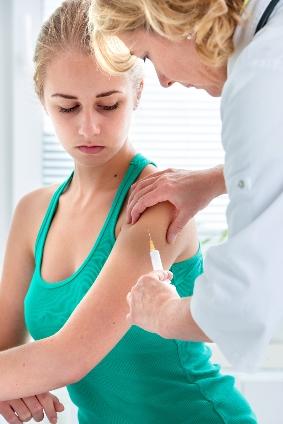A study conducted at two universities in Oregon suggests meningococcal group B vaccine (MBV) may offer protection against gonorrhea infection, researchers reported today in JAMA Network Open.
In the study, researchers with the Oregon Public Health Division analyzed gonorrhea incidence among more than 30,000 students ages 18 to 29 at the University of Oregon and Oregon State University who received one or more doses of MBV following group B meningococcal outbreaks on the two campuses in 2015 and 2016.

The study was prompted by a 2017 report by New Zealand researchers that showed MBV appeared to reduce gonorrhea incidence, with an estimated vaccine effectiveness of 31%, and successful follow-up studies that replicated the finding. Those studies found that outer membrane vesicle (OMV)-based MBVs target OMVs that are common to both Neisseria meningitidis and Neisseria gonorrhoeae, which are genetically similar.
The study population included 15,760 recipients of one or more OMV-based MBV (54% female, median age 19.3 years) and 15,212 recipients of one or more non–OMV-based MBV (56% female, median age 19.4 years). Fifty-three percent of non–OMV-based MBV recipients received more than one dose, compared with 57% of OMV-based MBV recipients.
Further investigation warranted
Overall, 24 gonorrhea cases were reported in OMV-based MBV recipients versus 44 cases in non–OMV-based MBV recipients. The analysis estimated that the OMV-based MBV was 47% effective in preventing gonorrhea among recipients aged 18 to 29. Among those aged 18 to 19, the OMV-based MBV was 59% effective. Vaccine effectiveness was 11% for recipients of two or more doses versus one dose.
Further investigation of OMV-based vaccination technology may be warranted.
"Given the global burden of gonorrhea, further investigation of OMV-based vaccination technology may be warranted," the study authors wrote.
The study limitations include the low number of gonorrhea cases, the likelihood of students graduating and leaving the disease-reporting area, and shifts in gonorrhea risk over time.

.jpg)














